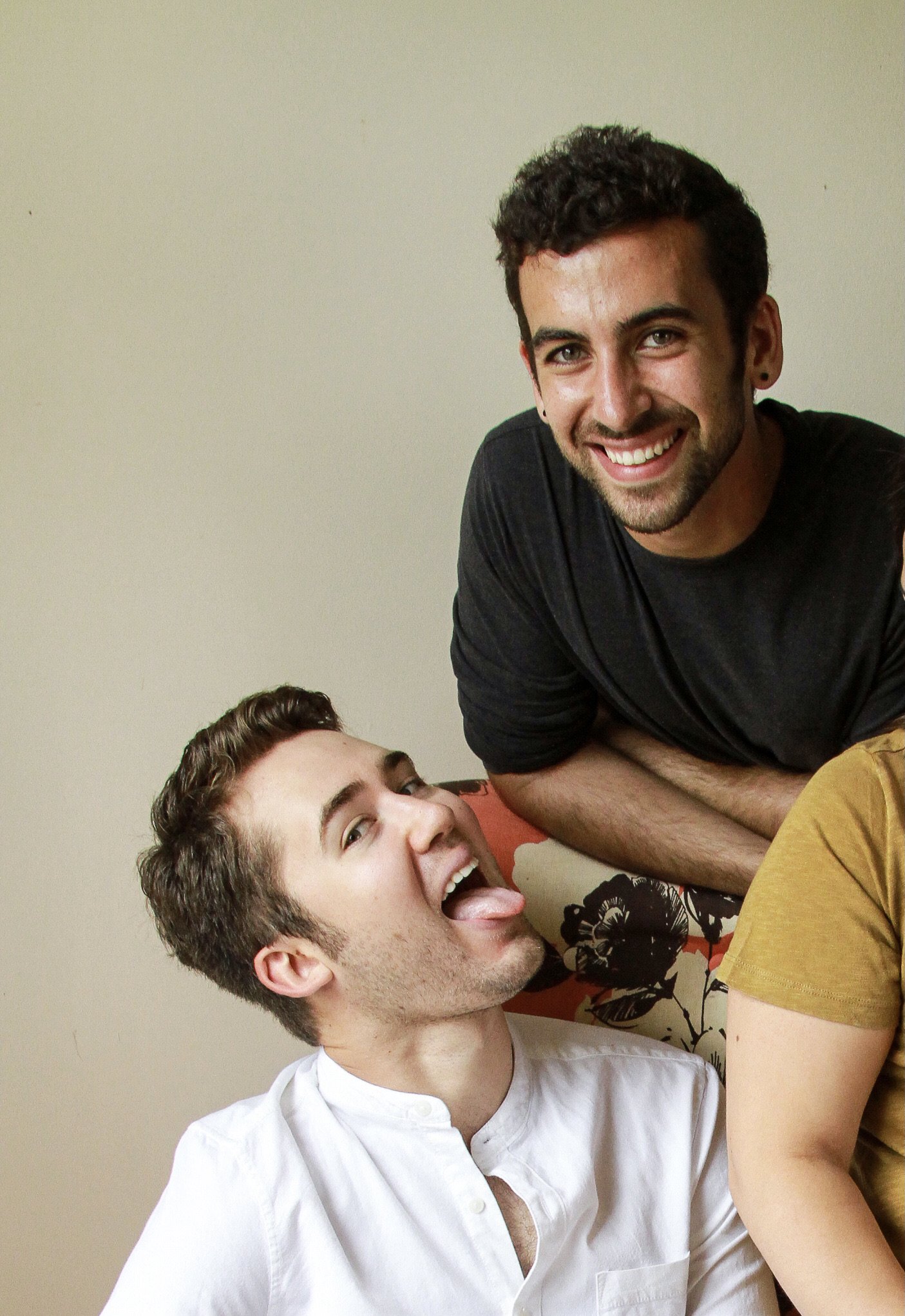Andy Cook & Ben Lapidus
Andy Cook & Ben Lapidus are the creators of Who Killed Avril Lavigne? Follow Who Killed Avril Lavigne? on Twitter here.
Why did you make Who Killed Avril Lavigne?
We made Who Killed Avril Lavigne because we love this music, this scene, and this moment in time so much that we thought there had to be a whole other mass of people who loved it just like we did. We’ve produced a version of this show as a live musical, but there are always limitations with live performances of how many people you can reach. Podcasting was a way to eliminate that barrier of accessibility and make it possible for anybody to find this story at any time, all over the world – and we’re so thrilled with the great feedback we’re getting!
This is our second release after 2018’s Gay Future, and we’re so excited to make many more shows!
Why is Warped Tour so funny?
We think Warped Tour is so funny because the idea of “pop punk” is so inherently contradictory – to be punk is to not be pop, and that tension between angst and pain and trying to draw attention to yourself is so innately hilarious to us. And there’s a built-in shitty attitude to the whole scene, and this deeply antagonistic feeling towards any sort of authority, that allowed us to build characters with really strong POV’s who were bigger than life that can say and do crazy outlandish things – but really, reality is stranger than fiction. In the first minute of the 2012 Warped Tour documentary “No Room for Rock Stars”, a guitarist from a band washes his hair with Monster Energy before walking onstage – so nothing we write is REALLY that outlandish.
Did you have to do research or did everything come from your memories?
A little bit of both – we both grew up loving this scene and this music, but there was still a lot of research to be done about specifics and making sure we covered the whole breadth of Warped Tour – there are so many different subgenres and different acts that we wanted fans of every type to feel like they saw themselves in this show. We had a big dramaturgical document that covered all the bands, trends, fashion, and big moments in popular culture of 2005, which was super useful to refer to.
What was your favorite part about making the show?
Recording was so fun – it’s such a blast to be in the room with talented actors (many of whom have been a part of the show for 3-5 years) getting to play and discover things and collaborate. Nothing that we do happens in a vacuum, and the moment where you see the script that you’ve worked so hard on transformed into a three-dimensional, living, and breathing thing, is just amazing. We’re so grateful to the incredible cast of voice actors (hire them!!) and whole creative team for making this such a joy to make.
What kind of podcasts do we need to see more of?
Honestly (and no shade meant to anyone in particular!!), I think that narrative podcasting could use some more genre differentiation. The space is pretty inundated with horror/mystery titles, and we made the kind of show that we want to see more of – high concept, grounded world, funny, and formally inventive. I think sometimes the need to make multiple (long) seasons can make those demands really difficult, so I hope podcast fans feel more affinity for limited series (esp because fiction podcasting is so damn expensive to make!)
How long did it take between the idea and the day you hit publish on episode one?
WKAL started out as a stage musical called Pop Punk High that premiered in an indie theatre festival at a church in Brooklyn in 2016. The show then leapfrogged from slightly bigger venue to slightly bigger venue, being rewritten and rethought every time, until we finally had a run at (le) poisson rouge in the fall of 2018. We got some great press from the FADER, Billboard, and others, and apparently it was enough to reach Germany, where a theater company reached out to us to translate the show into German to be performed for thousands of German high-schoolers, happening in 2023. After that vote of confidence, we thought about how we could reach even further, and after the success of Gay Future, we were really excited about the opportunities that podcasting provided.
We started writing first drafts of scripts in Spring 2019, but didn’t seriously hit the ground running until the pandemic hit and our work in live theater dried up. We wrote drafts of scripts from March 2020 to May 2021, hosting table reads every so often to get feedback, and we went into pre-production last summer, recorded last September and October, and edited and prepared for release until our air date on Feb 22nd, 2022.
Thanks, Andy and Ben!

